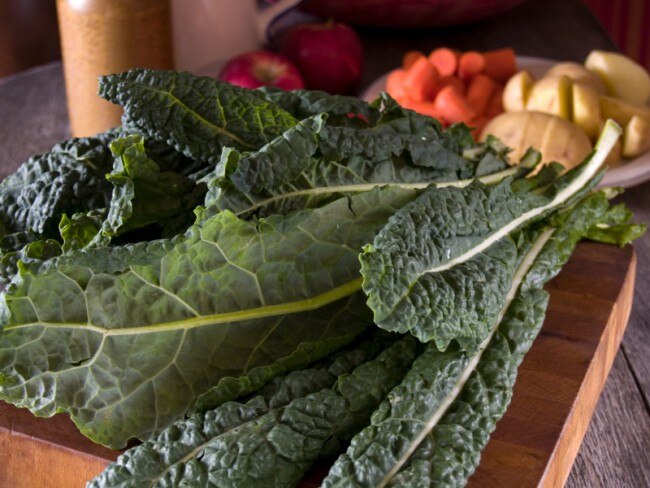Don’t athletes need protein? How can they perform on a no-meat, no-dairy diet? Do they just eat beans at every meal? Wouldn’t so much fiber make for a lot of digestive problems? As unusual or over-the-top as a vegan diet seems, there are three very good reasons this may be the perfect nutritional fit for very active bodies.

1. Efficient recovery time
Aside from rest (which, let’s be honest, no athlete really likes to do too much of, anyway), nutrition is extremely important in helping your body recover from each training session. Of course that means your nutrition needs to be rich in nutrients that will help your body rebuild the muscles you’ve broken down, soothe soreness and boost your energy levels. Essentially, the goal is to reduce stress levels in the body, so you can hop right back on the horse. Plant eaters can achieve this healthy state quickly, because they’re feeding their bodies whole-food-based vitamins, minerals, antioxidants and, yes, proteins that are more bioavailable. When you go straight to the source, skipping processing steps that can destroy the nutrients of certain foods, your body doesn’t have to work so hard to refuel and recover. More on this in #3.
2. Sustained alkalinity
A (proper, unprocessed) vegan diet includes more alkaline-forming foods that are meant to promote neutrality at the cellular level. The idea is that shifting away from an acidic environment can positively influence your overall health, including keeping physical stress at a manageable level. So what makes a food more alkaline? Hold onto your hats, because this can make your head spin. For instance, oranges — a citrus fruit, mind you — are considered acidic but actually create an alkaline effect when eaten. One nifty trick to help you tell if a food is going to have a neutralizing impact or not is the presence of chlorophyll. Chlorophyll has been shown to raise the pH levels of foods, which is why green-hued goodies are a must-have. In science-speak: chlorophyll absorbs sunlight to synthesize carbohydrates, which as you well know are used for energy. You’ll find chlorophyll mostly in dark leafy greens, hemp and sea veggies like spirulina. If it helps ease your mind, these foods are also rich in amino acids — a.k.a. protein.
3. Easy digestion
Consider the typical American diet that’s high in processed, refined or chemically altered foods. To thoroughly break down burgers, fried treats and even (seemingly healthy) frozen grilled chicken breasts, our digestive system draws extra blood to the stomach. When the majority of blood is running to your stomach, you may notice feeling chilly, getting a case of the yawns and having a strong urge to take a catnap. This doesn’t just happen on Thanksgiving when you’ve likely eaten a truck-load. When you consume any amount of food that has been stripped of essential enzymes and all its goodness, your body is going to have to find energy to process it. Our blood cells can only handle so much. In contrast, whole fruits, greens, nuts and seeds have a low impact on the body’s ability to digest and absorb because their nutrients are still in tact, making them a clear choice for athletes in training. After all, we don’t have time to wait on our stomach – nor do we have the energy to spare. We’re saving that for the sprint across the finish line.
Complete the meat-free, dairy-free picture.
Though you can get adequate amounts of vitamins and minerals on a vegan diet, there are a few key nutrients which should get special attention. The biggest one is B12. With the elimination of all animal products, you’d be hard-pressed to get enough B12 from diet alone. And because B12 plays a role in energy production, you might want to supplement with a vegan-friendly B-complex.
Ample protein consumption is also a legitimate concern for vegan athletes. The recommended daily protein intake for the average woman is 46 grams per day. A woman in training, however, might need double or triple that amount (depending on weight and activity level). To reach those requirements, try Vega Sport Performance Protein which provides 26 grams of vegan protein, 5,000 mg BCAAs and 5,000 mg glutamine in only 131 calories per serving. It’s perfect post-workout or as an anytime snack to up your protein intake.
Make a plant-based meal plan work for you.
To help keep this type of diet from feeling so radical (and impractical and unattainable and more work than it’s worth), start by making small changes. Once you build a foundation, you can create a nutritional routine as “extreme” as your athletic goals. Okay, maybe not that extreme.
Are you a vegan athlete? I’d love to hear how this type of diet has helped you perform. Share in the comments below!
